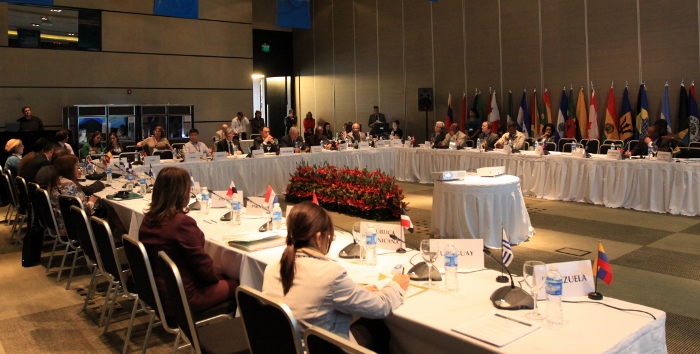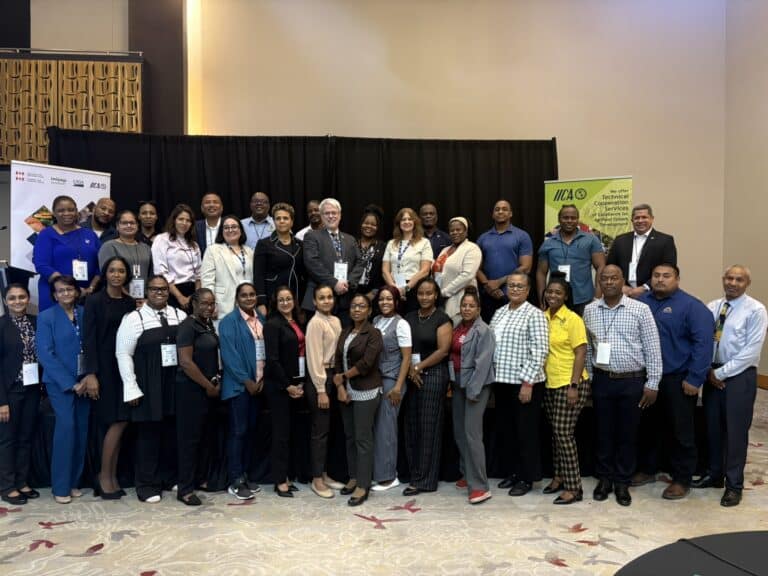Costa Rica is one of the countries participating in the most important agricultural ministerial meeting of the Americas.
San Jose, 8 October 2015 (IICA). From October 19 to 23, the Ministers of Agriculture of the Americas will be meeting on the Riviera Maya, Mexico, to discuss the region’s alternatives for driving its agricultural productivity and the development of its rural territories.

Organized by the Secretariat of Agriculture, Livestock, Rural Development, Fisheries and Food (SAGARPA) of Mexico and the Inter-American Institute for Cooperation on Agriculture (IICA), the ministerial meeting will focus on the topic of “Sustainable Agricultural Productivity and Rural Inclusion.”
The technical forum will bring together ministers, experts, and representatives of international organizations to discuss ways in which the hemisphere can foster productivity and inclusion in agriculture.
Additionally, during the meeting, IICA will present the main achievements resulting from the implementation of its 2014-2018 Medium-term Plan (MTP), an evolution of the Institute’s cooperation model, which seeks to take full advantage of all institutional capacities in order to achieve results.
The Inter-American Board of Agriculture (IABA), made up of the ministers of agriculture of IICA’s 34 member countries, will also be meeting during the event in order to decide on ways to offer a more robust technical cooperation and improve responses to each nation’s requests for support.
The slogan of the meeting is “Grow better, produce more, feed everyone.” “Nowadays, our region must produce more, either for its own consumption or for export. It is therefore critical to innovate in technology and drive investments, policies and partnerships to gain efficiency in productivity, which generates wealth and rural prosperity,” stated Villalobos.
Yum Kax, the god of agriculture or maize god, is the graphic element being used to represent and exalt Mayan culture and the region in which the ministerial meeting will be taking place.
More information:











